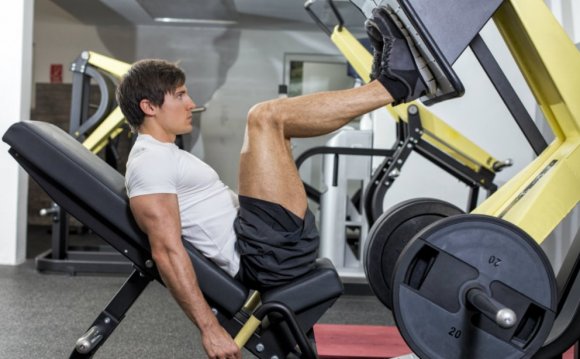
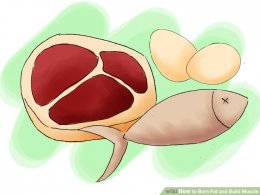
Steps
Part 1
Optimizing Your Diet- Go high-protein. Yeah, you've heard this one before, and there's a reason for it. Protein is made up of amino acids, which are the building blocks of your muscles. Without it, your muscles will literally not develop. While you should never completely cut out anything from your diet, to force those fats and carbs to move over, it's protein packing time.
- 1-1.5g of protein per lb of body weight is recommended to facilitate muscle building. Good sources of the stuff are soy, legumes, beans, leafy vegetables, meat, eggs, and plant milks. One of these should have a staple of every meal.
- Your body burns carbs, fats, and then protein, in that order. So when you eat that bowl of cereal prior to your workout, your body burns off the cereal. But when you have that egg for breakfast, your body has to go for your fat storage instead. This knowledge will make your workouts more effective.
- Cycle your carb intake. All this "no carb" mumbo jumbo is just that—mumbo jumbo. Yeah, carbs are what creates that extra weight around your midsection, but they do serve their purpose (at least the good ones). They are your body's primary source of energy. If you cut carbs out of your diet completely, your metabolism will drop (and if you're male, your testosterone levels will drop too).
- To circumvent this problem, the simplest answer is to cycle your carb intake.
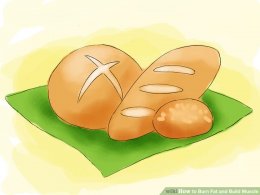 This keeps your body guessing, your metabolism up, and for the majority of the time your body is concentrating on your fat storages. This can be done in two ways.
This keeps your body guessing, your metabolism up, and for the majority of the time your body is concentrating on your fat storages. This can be done in two ways.
- Go low-carb for a few days, then consume a moderate amount for a day or two, and then go high-carb to round out the week.
- Go low-carb for a few weeks, and then go high-carb for a solid week. This takes extra diligence!
- For the record, brown rice, wild rice, sweet potatoes, whole wheat bread, wheat pasta, vegetables, and some fruits are great sources of good carbs. Processed junk and pretty much anything white is not!
- To circumvent this problem, the simplest answer is to cycle your carb intake.
- Aim for the good fats. Yes, fats have their place, too. They can keep you feeling full, stabilize your insulin levels, and keep you energized. You don't want to drown in them, but you do want them to be a small part of your everyday diet.
- Avocados, walnuts, almonds, olive oil, natural peanut butter, some egg yolks, and sunflower seeds are the fats that you don't want to be cutting out of your diet. Just eat them in moderation!
- Time your meals. While what you eat won't affect how many calories you burn during your workout, it will affect what kind of calories your body burns. And we want to burn those fat calories, so here are your options:
- If you work out in the morning, work out prior to breakfast. Your body will go straight to the fat stores.
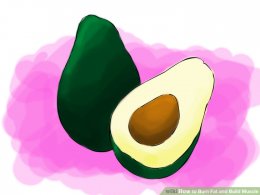 However, a cup of plain coffee won't hurt (and we'll get to why next).
However, a cup of plain coffee won't hurt (and we'll get to why next). - If you work out in the afternoon or evening, have your pre-workout meal 2-3 hours before your workout and have that meal be low in simple (bad) carbs. It's the same concept—you want your body entering "fasting" mode.
- Always be careful when working out on an empty stomach. If you start to feel dizzy, stop.
- If you work out in the morning, work out prior to breakfast. Your body will go straight to the fat stores.
- Consume caffeine prior to your workout. At last! An excuse to drink coffee and nibble on dark chocolate! Research has shown that those who ingest caffeine prior to a workout burn more fat calories. You don't want to go overboard, but it's worth drinking a cup of coffee (as black as possible) or munching on an ounce of dark chocolate for!
- Looking for a reason why? There's two: first, coffee stimulates the nervous system, raises the metabolism, and tells your body to start breaking down its fat stores. Second, it increases levels of Epinephrine - the source of that elusive adrenaline rush.
- Always be careful with this. It can make you dizzy or nauseated, especially if you drink only coffee prior to your workout.
- This is just good advice for anyone. It clears your skin, helps your organs, keeps you energized, and can help you lose weight. Your muscles need to stay hydrated to keep going. So drink up! When you wake, when you go to sleep, and with every snack and meal.
- Just keep a bottle with you. Drink from it absent-mindedly. You'll feel fuller, too, resulting in the pounds falling off without any real work on your part.
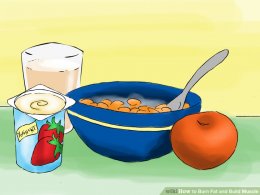
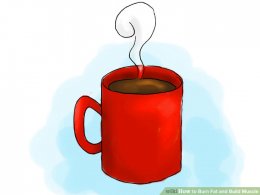
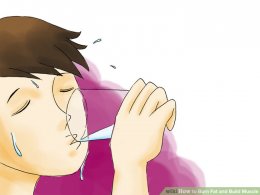
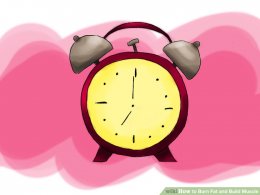
INTERESTING VIDEO
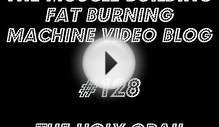
Muscle Building Fat Burning Machine VLog 122
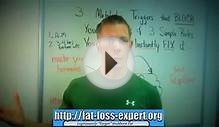
fat burning muscle building workouts
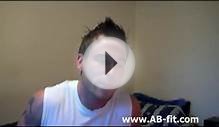
fat burning v muscle building.mpg









